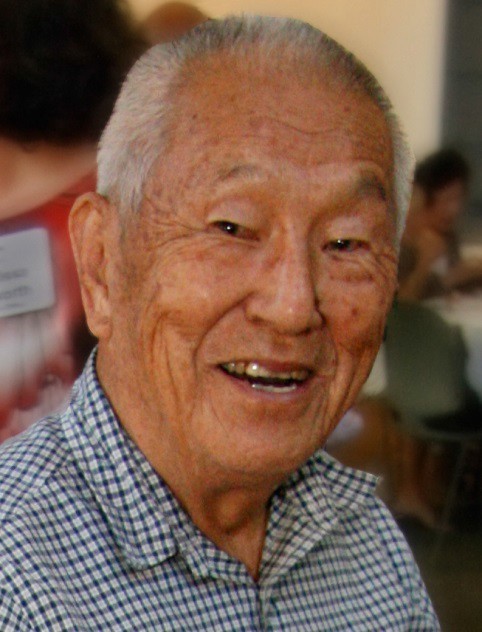
Kay Ryugo
Professor of Pomology, Emeritus
Kay Ryugo was born on April 10, 1920, in Sacramento, California. He graduated from Sacramento High School in 1938 and Sacramento Junior College in 1940. After the attack on Pearl Harbor in 1941 he was drafted into the US Army with a group of other Japanese-American soldiers and served in the 100th Infantry Battalion of the 442nd Regiment Combat Team. After the war he enrolled in UC Davis as a Horticulture major and graduated with B.S. and M.S. degrees in 1949 and 1950, respectively. He then continued studies at UC Davis and completed a Ph.D. degree in Plant Physiology in 1954 and was appointed an Agricultural Experiment Station Assistant Researcher in the UC Davis Department of Pomology. After several advancements, in 1978 he was afforded the title Professor and Pomologist in the Agricultural Experiment Station. Professor Ryugo retired from the Department of Pomology in 1988 after 34 years of service to the University.
Dr. Ryugo’s research was broadly focused on physiological, biochemical and developmental changes in reproductive and vegetative tissues of numerous commercially important deciduous fruit trees species cultivated in California (including peach, nectarine, pear, Asian pear, persimmon, cherry, almond, prune, kiwifruit, walnut and pistachio). He was recognized for collaborative research on pomological problems such as pear decline, fire blight in pears, pistillate flower abortion and the development of high density plantings in walnut. He also had a particular interest in evaluating the suitability of specific chestnut cultivars for cultivation in California. In the latter part of his career Kay Ryugo was an invaluable resource and mentor to UC farm advisors and Cooperative Extension specialists because of his desire to share his vast horticultural knowledge and field experience in pomological research. He played a key role during the 1970s and 1980s in research directed towards advancing the use of higher tree densities (e.g., hedgerow plantings) in establishing new walnut orchards for increased efficiency and early economic production. He also collaborated on research to guide the development and implementation of mechanical hedging for managing the canopy of close-planted walnut orchards to reduce pruning costs and delay the adverse effects of tree crowding/shade. These studies by Kay and his colleagues coincided with the release by UC of new higher yielding walnut scion cultivars with improved nut quality and smaller tree stature. Kay Ryugo’s field-oriented research and link with Cooperative Extension contributed to a transformation in the planting and management of walnut orchards resulting in earlier economic production and sustained higher yield and quality of walnuts.
Kay taught a core course in the UC Davis pomology curriculum concerning fruiting of tree crops for two decades and authored a textbook in 1988, Fruit Culture: Its Science and Art based largely on the course that he taught. Students particularly appreciated his expertise and instruction on practical horticultural techniques such as grafting, budding and pruning. He guided the research of several MS and PhD students in the Horticulture and Agronomy, and Plant Physiology Graduate Groups. During his career he was awarded several travel fellowships and lectureships to study/lecture in Italy, Greece, Japan and China and maintained professional connections with other pomological scientists around the world. After retirement he maintained ties to the Pomology Department and helped out in teaching practical techniques of pomology and annually pruned his collection of kiwifruit varieties for more than two decades.
In addition to his professional activities Kay Ryugo was skilled at ceramics and woodworking and made numerous pieces of art, furniture and musical instruments, including several violins. Kay was preceded in death by his wife Masako (who had been interned at Tule Lake, CA during the early 1940’s) and is survived by five children, six grandchildren and two great-grandchildren.
Submitted by: T.M. DeJong, S.A. Weinbaum, D.E. Ramos and R.J. Romani
